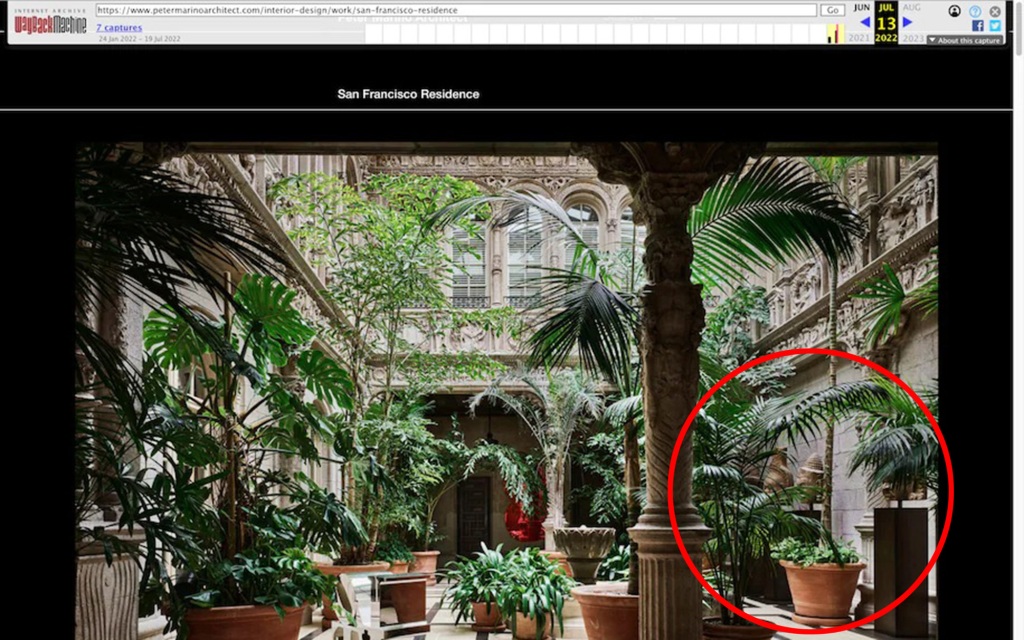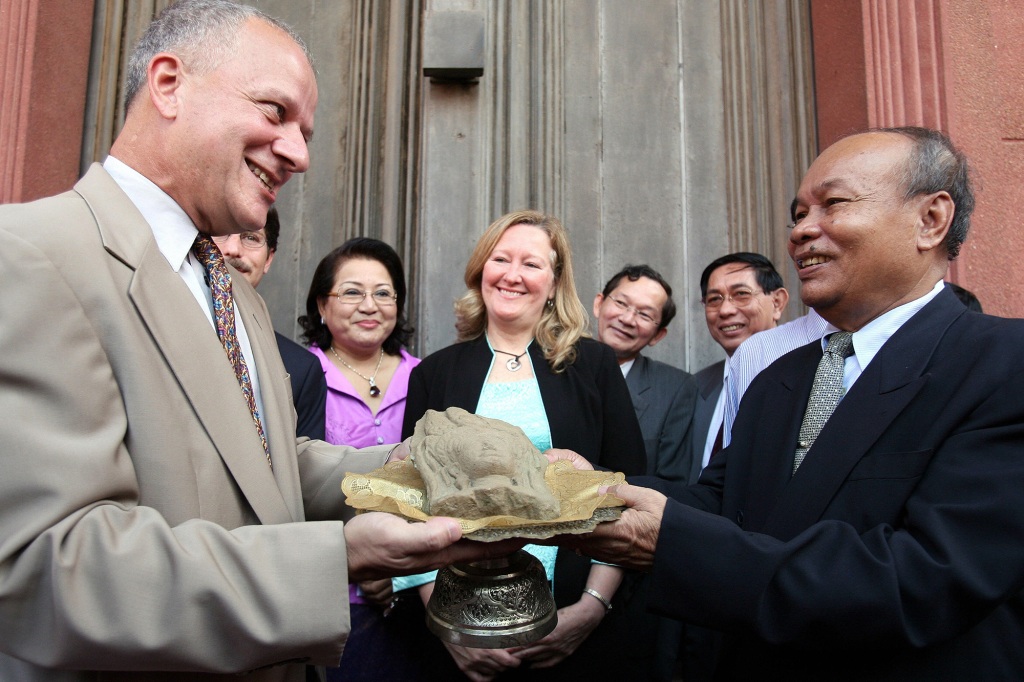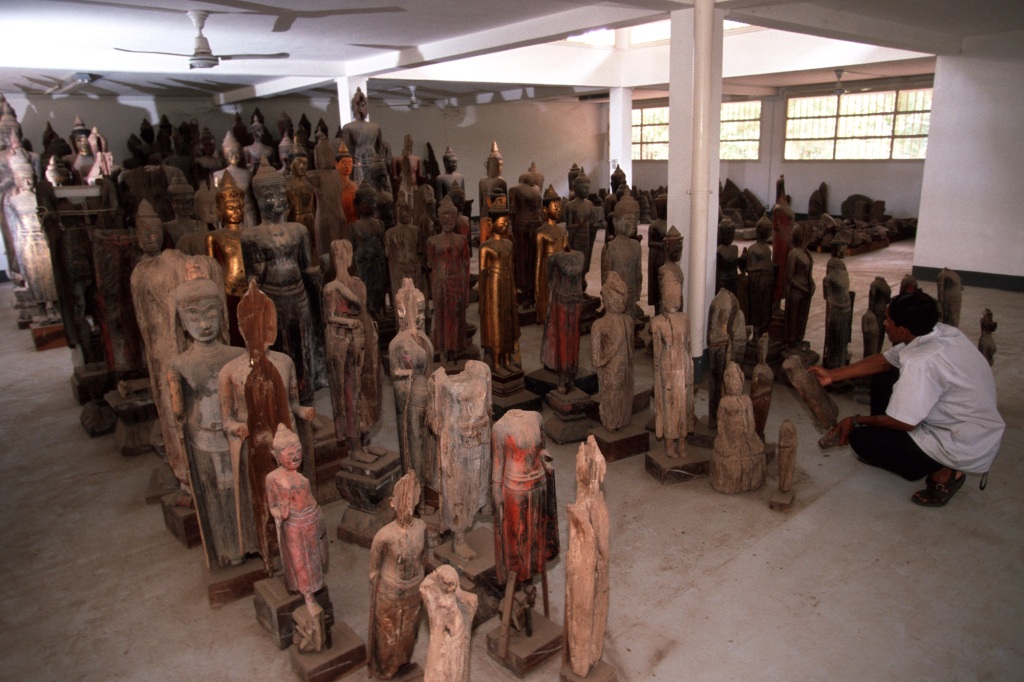Luxury mag altered photos of possibly stolen Cambodian artifacts
A glossy home spread may be key evidence in the recovery of lost relics.
Photos of this $42 million San Francisco mansion have become of great interest to the Cambodian government — at least, unaltered photos of it, the Washington Post reports.
Architectural Digest’s January 2021 issue featured a photo-filled spread on the palatial California house of author Sloane Lindemann Barnett and her husband, nutritional supplements company executive Roger Barnett.
Images of the property documented its grandeur, from stunning Bay views to white onyx-paneled walls but, upon close inspection, appear to have removed a key feature in post: A series of ancient Khmer sculptures positioned atop pedestals in the two-story courtyard, which the Cambodian government say match those stolen from one of the nation’s sacred sites years ago.
A separate photo of the courtyard previously published on the website of architect Peter Marino (who remodeled the 17,000-square-foot estate in 2011, after the Barnetts bought it), however, shows the same impressive enclosure but with a set of Khmer god and demon heads atop the pedestals.
In the Architectural Digest images, the pedestals appear empty, and experts say the images seem to have been retouched.

“There are small but consistent signs of air-brushing around the plant leaves in which small parts of the plant were air-brushed out along with the statues,” University of California, Berkeley, visual forensics expert Hany Farid told the Washington Post of the Architectural Digest images. “It seems highly unlikely that two photos would be taken in succession without anything else in the entire room moving.”
According to an Architectural Digest spokesperson, the magazine images don’t show the relics due to “unresolved publication rights around select artworks,” a representative told the Washington Post, declining to comment further.
Barnett and Lindemann did not immediately return The Post’s request for comment, nor did they return the Washington Post’s email and phone messages.


“Some of these statues are of enormous historical and cultural importance to Cambodia and should be repatriated as soon as possible,” Cambodia’s minister of culture, Phoeurng Sackona, told the publication, referring to both the statues at the Barnetts and the Khmer artifact collection owned by Sloan’s billionaire parents, Frayda and the late George Lindemann.
“It’s not just art,” adds archaeologist Sopheap Meas of the relics. “We believe that each of these holds the souls of our ancestors.”
The US Department of Homeland Security has reportedly contacted the family — who have not been accused of wrongdoing relating to the artifacts — regarding the collection, but there is “no indication” they plan to return the statues, the Washington Post reported, according to two people with knowledge of the matter.
The situation points to a persistent problem within the art world, wherein wealthy collectors purchase pieces unknowing of or uncaring as to how they’ve been acquired and then are less than eager to return them when it’s revealed they were taken illegally.
“I tell my clients, even if you see something really beautiful, if it doesn’t have enough information, just walk away,” art and antiquities theft expert and former Department of Homeland Security senior special agent Jim McAndrew told the Washington Post of how he consults art dealer clients on the matter. Should they not walk away, then later learn their purchase was stolen, “Give it back,” he advises.
Read the full article Here


